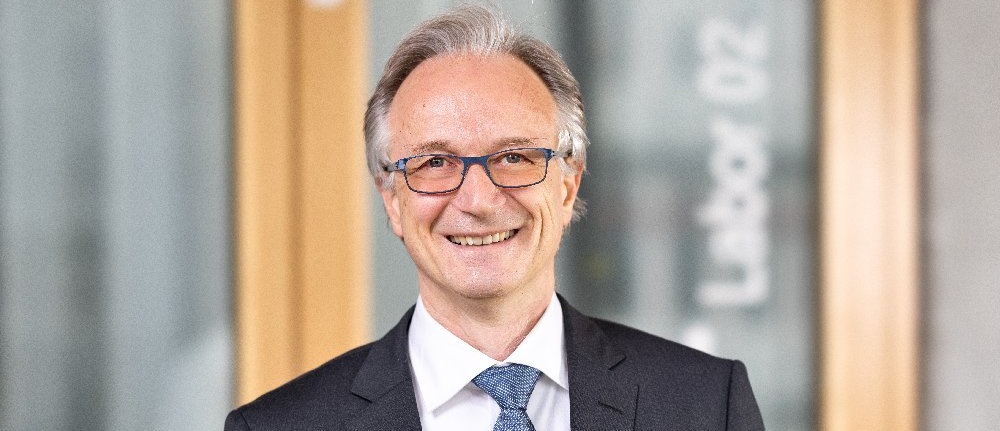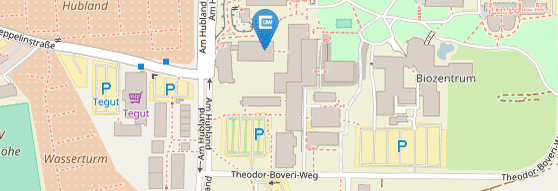
Contact:
Prof. Dr. Frank Würthner
Institut für Organische Chemie
Universität Würzburg
Am Hubland
97074 Würzburg, Germany
Phone: +49 931 31-85340
Fax: +49 931 31-84756
wuerthner@uni-wuerzburg.de
CV of Frank Würthner
Frank Würthner was born in 1964 in Villingen-Schwenningen/Germany. He studied Chemistry at the University of Stuttgart where he obtained his PhD degree in 1993 working with Prof. Franz Effenberger on donor-acceptor substituted oligothiophenes and their use in molecular electronics. After a postdoctoral year as an AvH-Feodor-Lynen fellow in the laboratories of Julius Rebek, Jr. at Massachusetts Institute of Technology in Cambridge/USA he joined BASF Dye Stuff Research in Ludwigshafen/Germany to work on functional dyes for speciality applications like non-impact printing, electroluminescence and nonlinear optics. In 1997 he moved to University of Ulm to start his habilitation with projects on organic materials for photonics and supramolecular dye chemistry. Since October 2002 he is full professor in Würzburg (Chair of Organic Chemistry II).
Weblink to complete CV of Frank Würthner
Weblink to Angewandte Chemie author profile of Frank Würthner
Research synopsis
Supramolecular Synthesis: Exploration of physico-chemical principles for the construction of highly defined dye assemblies and elucidation of structure-property relationships by means of structural (NMR, MS, AFM, STM, REM, XRD) and electronic/optical (UV/Vis/NIR absorption, CD, fluorescence, cyclic voltammetry) characterization techniques.
Photofunctional Dye Assemblies: Construction of molecular assemblies composed of dyes and metal centers and investigation of their light harvesting and photocatalytic properties.
Nano and Solid State Chemistry: Engineering of functional nanostructures and complex solid state and thin film materials, including thermotropic and lyotropic liquid crystals.
Organic Electronics & Photovoltaics: Synthesis of new organic semiconductor molecules and preparation and characterization of organic transistor devices and solar cells based on such molecular semiconductors.
Nanosystems for Biomedicine: Preparation of functional nanosystems and investigation of their interactions with biomacromolecules and biological surfaces.



